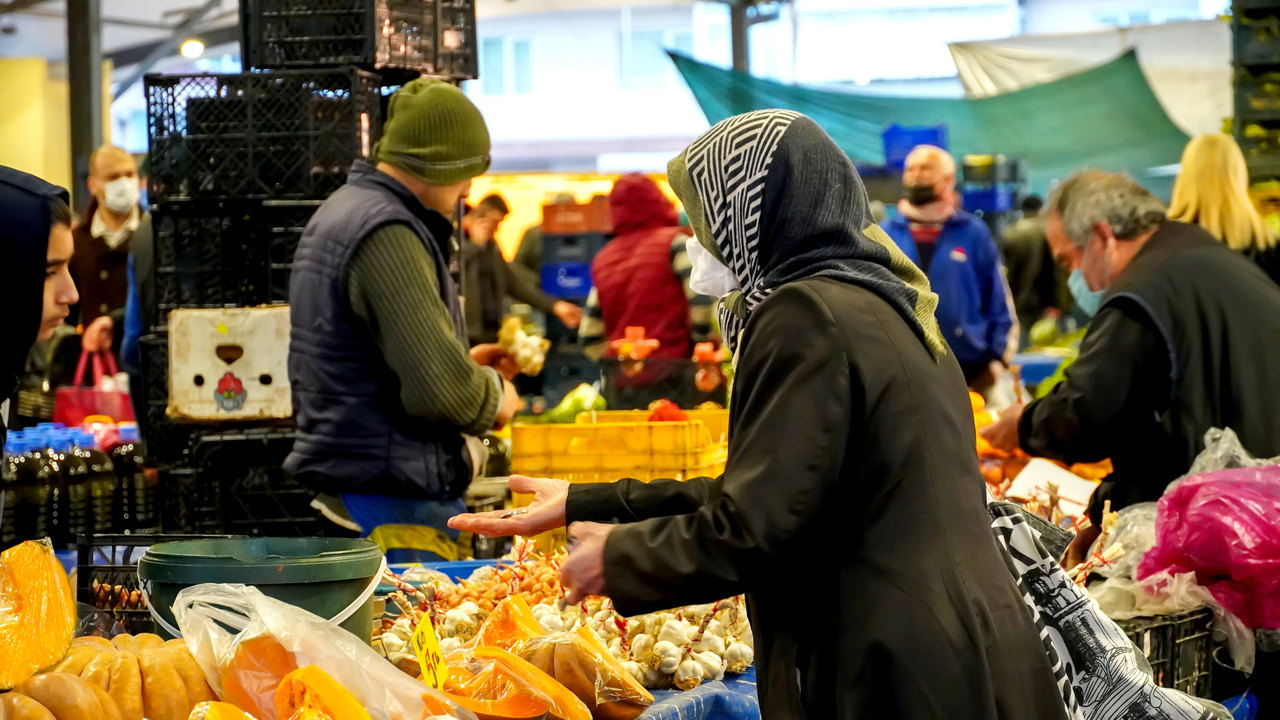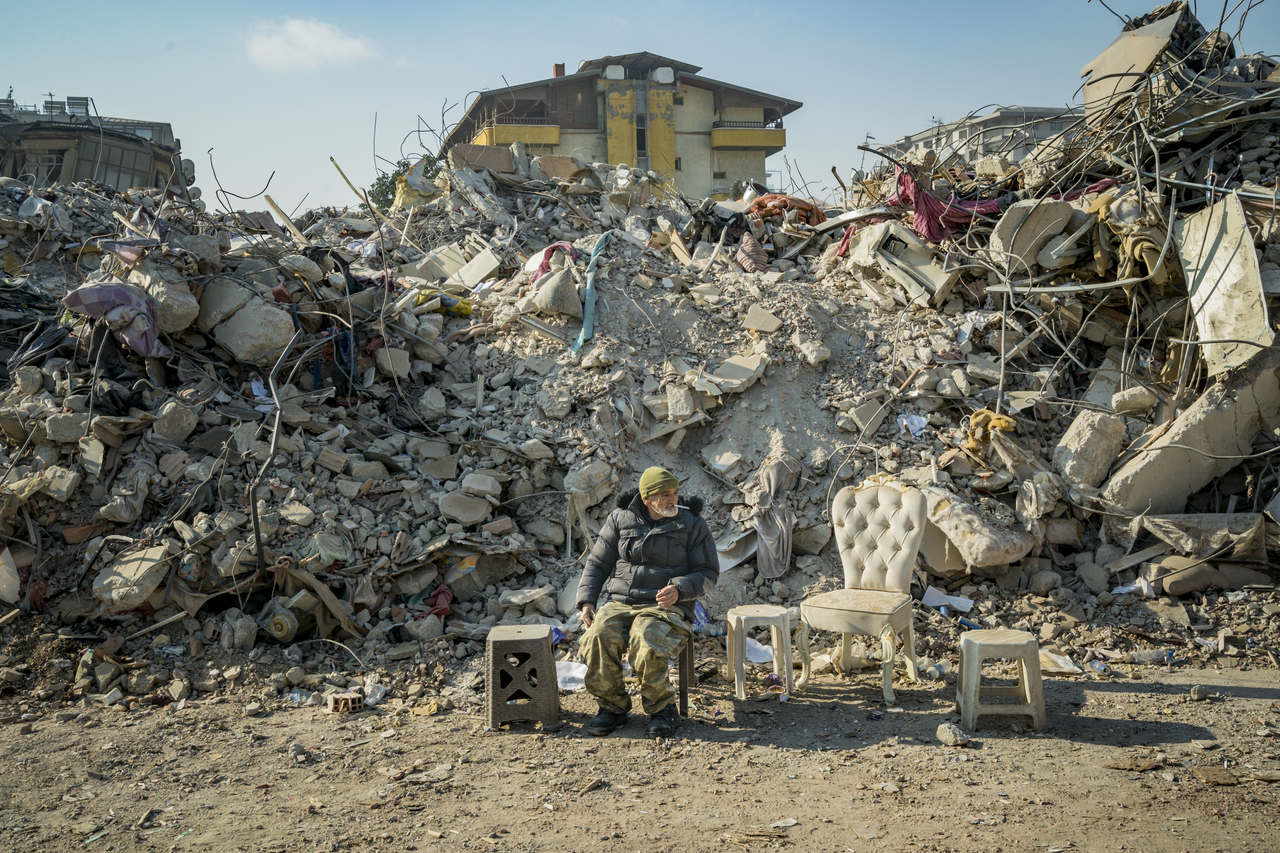Türkiye's Interest Rate Shift Aims to Boost Confidence in the Economy
Turkish President Recep Tayyip Erdoğan’s presentation of the medium-term economic plan on 6 September is expected to demonstrate the stability of the Turkish economy and boost foreign investor confidence in it. Despite a return to a policy of interest rate hikes in the fight against inflation, it will not be possible to carry out reforms to permanently stabilise the country’s economy without strengthening the Central Bank’s autonomy and improving democratic standards.
.jpg) Depo Photos / Zuma Press / Forum
Depo Photos / Zuma Press / Forum
The Turkish economy was already struggling with structural problems before the outbreak of the COVID-19 pandemic. These were compounded by the economic policies of President Erdoğan, who links the rise in inflation to high interest rates. In his view, it was justified to lower them to stimulate domestic investment and exports However, the Central Bank’s lack of independence and Erdoğan’s decisions to appoint the heads of this institution and the Treasury and Finance minister, who pursued a low-interest-rate policy, worsened the economic situation in the country and caused foreign investors to flee. The February earthquake also added to the problems, with Erdoğan announcing that financial losses from the natural disaster amounted to more than $100 billion.
Correction of Economic Policies
After winning the presidential and parliamentary elections in May, Erdoğan introduced a correction in economic policy. In forming a new government, he chose Mehmet Şimşek, who as finance minister was responsible for maintaining fiscal discipline in the Justice and Development Party (AKP) government from 2009 to 2015. In parallel, he appointed Hafize Gaye Erkan as governor of the Central Bank. Her career took her to the United States, including at Goldman Sachs, one of the world’s largest investment banks. She is widely recognised at home and abroad as a professional technocrat. Erdoğan’s personnel decisions have been met with a positive response. According to the Central Bank, foreign investors bought a net $1.1 billion in Turkish stocks in June this year, the largest monthly inflow since November 2020. On 24 August this year, the Central Bank of Türkiye made the highest rate hike in the main interest in recent years, from 17.5% to 25%, and on 21 September it was raised to 30%. Another measure to rebalance the country’s economy was the withdrawal of a scheme introduced in 2021 to protect lira deposits from currency depreciation.
Another manifestation of the drive to rebalance the economy is the announcement in September by Erdoğan and Türkiye’s vice-president, Cevdet Yılmaz, of a roadmap for the Turkish economy for the period 2024-2026. The government’s assumptions for the coming years include, above all, maintaining economic growth, bringing inflation down to single digits, and rebuilding areas affected by the February earthquake.
Erdoğan declares that he wants to maintain ambitious targets on economic growth, which is why the programme envisages an increase in GDP to $1.3 trillion (in 2022, it was $905.9 billion) and a per capita income of $14,855 by the end of 2026 (in 2022, it was $10,616). His programme also aims to reduce inflation to 8.5% by 2026 (according to the official statistics office, TÜIK, Türkiye’s annual inflation rate in August this year was 58.94%, but the independent ENAG Inflation Research Group reports that it was 128.05%). The plan raised the inflation forecast for the end of this year from 58% to around 65%. In an attempt to stabilise the economic situation, this results in tax increases. In July, the price of petrol rose from TRY 28 to TRY 34 per litre and diesel from TRY 26 to TRY 32 per litre.
Economic Situation and Foreign Policy
Longstanding economic problems at home have prompted Turkish policymakers to seek funding from Arab Gulf states, including the United Arab Emirates (in July this year, the UAE signed agreements with Turkey worth an estimated $50 billion), Qatar, and Saudi Arabia (in March this year, deposited $5 billion with the Central Bank of Türkiye through the Saudi Development Fund). In addition, Türkiye can continue to rely on the support of the Russian government, which has agreed to defer payments to Gazprom for Turkish natural gas importer BOTAŞ. Enjoying Russia’s favour does not prevent Türkiye from declaring its willingness to participate in Ukraine’s reconstruction plan. According to Burak Pehlivan, president of the Turkish-Ukrainian Business Association, more than 700 Turkish companies were active in the country before the war, with investments exceeding $4.5 billion. Türkiye has a strong presence in Ukraine in construction, textiles, food, machinery, cosmetics, and telecommunications. Nor do the Turks intend to abandon cooperation with the Ukrainian arms industry. In July this year, Ukraine’s Minister of Strategic Industry Oleksandr Kamyshin announced that the Turkish company Baykar had started building a factory in Ukraine for Bayraktar TB2 unmanned aerial vehicles. Production is expected to start in 2025, with a total investment of around $95 million.
At this year’s NATO summit in Vilnius, Erdoğan returned to using pro-EU rhetoric in the hope of restoring confidence among Western investors. Maintaining relations with the EU is necessary, not least because it remains Türkiye’s largest partner in the import and export of goods—last year, 41% of Turkish goods went to Community markets. As a sign of approval of the economic policy adjustments, the World Bank decided in September to increase the loan package for Türkiye to $35 billion. It is intended that two-thirds of this amount will be allocated to the private sector in the form of direct investments and guarantees, with the remainder going towards financing public sector activities, including extensive reconstruction work in earthquake-affected areas.
Conclusions and Outlook
Following Erdoğan’s re-election in May, there has been a revision of past monetary policy and a rejection of the scheme to cut interest rates in the fight against inflation. The proposal on the table aims to alleviate foreign investors’ concerns about the government’s previous economic policies. Despite the Central Bank’s decision to raise interest rates, the Turkish lira still remains weak at around TRY 27.42 per $1 (compared to around TRY 17 a year earlier and around TRY 8.7 in 2021). The government has increased taxes on, among other things, fuel products, explaining this by the need to cover earthquake-related expenses; nevertheless, according to critics of the government camp, these are due to the so far negatively assessed low-interest-rate policy.
The economic problems may translate into a limited possibility of loans or grants for the reconstruction of Ukraine. Nevertheless, it can be assumed with high probability that Erdoğan will push for tenders for the reconstruction of Ukraine’s logistics infrastructure to be awarded to Turkish construction companies with close ties to the AKP government.
Türkiye operates under a presidential system and the decision-making process remains dominated by an entity with the power to approve changes in the economic sphere. Although Erdoğan declares a strong commitment to financial discipline, it is still difficult to clearly assess whether the adjustment initiated will be long-lasting or merely an ad hoc measure. It can be assumed that it represents a tactical move that allows the AKP to implement social programmes and government projects, and thus promote success ahead of the local elections, which are scheduled for March next year. This argument is supported by, among other things, the appointment by Erdoğan of the previous Central Bank governor, Şahap Kavcıoğlu, who pursued a policy of lowering interest rates, as chairman of the Banking Regulation and Supervision Agency.
While the World Bank’s increase in financial assistance is a sign of confidence in Türkiye’s new economic policy direction, the package was nevertheless granted without the Turkish government introducing concrete structural reforms. In the long term, the non-application of conditionality mechanisms by Western institutions will contribute to perpetuating the erosion of democratic standards in Türkiye. Furthermore, the lack of independence of the Turkish Central Bank will not foster an atmosphere of confidence among foreign investors. Greater economic stability and a rational policy of interest rate rises is a positive prognosis for Polish-Turkish economic relations, but due to the systemic weaknesses of the Turkish economy, Polish investors should maintain a cautious stance and observe whether the changes are implemented consistently and met with an appropriate response from the markets.





.jpg)